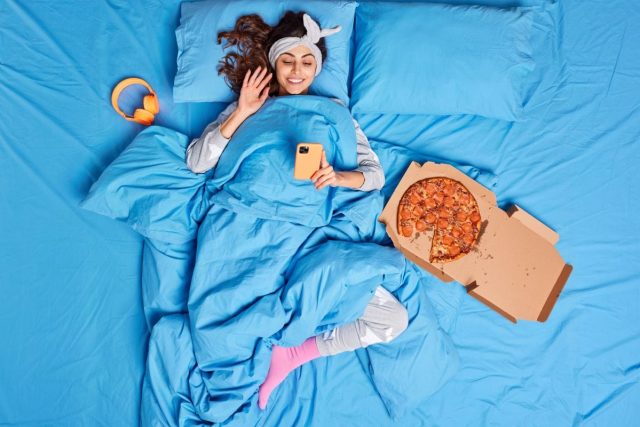About 55 percent of Gen Z says they have tried a sleep trend they came across on TikTok and other platforms
By Physician’s Briefing Staff HealthDay Reporter
FRIDAY, Aug. 23, 2024 (HealthDay News) — Approximately 37 percent of Americans have tried one or more of this year’s viral sleep trends, including “bed rotting,” according to the results of a new survey from the American Academy of Sleep Medicine (AASM).
Sleep experts say these trends likely will not do any immediate harm, but they add that people would do better to see a doctor if they are not getting adequate nighttime rest.
Members of Generation Z in particular are experimenting with these trends, with 55 percent saying they have tried at least one. “Bed rotting” has become especially popular. It involves staying in bed, sometimes for up to a day or more, with hopes of improved rest even as the person engages in activities other than sleep, experts explained. About a quarter of Gen Zers (24 percent) said they had tried bed rotting, the survey revealed.
This trend reflects a broader shift in how people use their time in bed, experts said. More than half (51 percent) of people spend more than 30 minutes in bed before trying to go to sleep, and 27 percent say they linger in bed most mornings before getting up.
“These trends may not be inherently harmful, but it’s important to remember that the bed’s primary purpose is for sleep,” Anne Marie Morse, M.D., a sleep medicine physician for Geisinger Health System in Pennsylvania and a spokeswoman for the AASM, said in an academy news release. “The intentional practice of maintaining healthy sleep habits, like a consistent sleep schedule with regular timing of bedtime and waking and not going to bed unless you are sleepy, will serve as a positive reinforcement of the bed being a place for sleep and is essential for maintaining ease of falling and staying asleep.”
Other sleep trends include experiments with so-called “natural sleep aids” and different sleep routines. Nearly 9 percent of people have tried drinking magnesium, known as the “sleepy girl mocktail,” while another 9 percent have tested the effectiveness of sleeping in 90-minute increments, the survey found. This practice is notably popular among Gen Z, with 15 percent having tried it.
Social sharing about sleep practices is so popular that people have even tuned in to livestreams of others sleeping (8 percent) or have live-streamed their own sleep (7 percent), the poll showed.
“As an avid social media contributor, I attempt to be a resource for all things sleep across platforms, and it is exciting to see increasing awareness and socialization about optimizing sleep, rather than the continued stigma, perpetuation, and even championing of ‘getting away with’ less sleep,” said Morse. “Sleep problems are common and treatable; however, the right solution for the specific issue at hand is necessary.”
Copyright © 2024 HealthDay. All rights reserved.



















